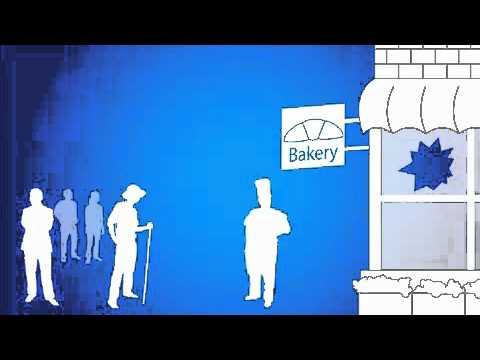It’s not hard to find stories about how the recent tragic devastation in Japan is supposedly going to lead to growth and prosperity. That’s the old “destruction leads to profit and wealth” myth that has been resurrected more times than Count Dracula and is a cousin to the “government can stimulate the economy” and “government creates jobs” myths. In other words, it is the destruction of wealth that causes its creation. Got it? Now, don’t make the mistake of letting that thought linger in your mind too long, lest it cause a brain rot that even penicillin can’t cure. If such a crazy idea were actually true, then we should immediately bulldoze every bulding in the entire country and start over. My, how rich we would be then. And that illustrates the incredible silliness to which human beings are susceptible, time after time.
To illustrate the absurdity of such ideas, the great French Economist, Frederic Bastiat, wrote his classic 1850 essay, “That Which is Seen, and That Which is Not Seen”, of which “The Broken Window” was a part. You can read the entire essay here, but, for brevity’s sake, I will summarize:
The young son of a shopkeeper was playing in the street and happened to break the huge display window of his father’s shop. A crowd gathered to view the damage, and many postulated as to what a boost the breakage would give the economy. After all, if the window should cost $1000 to repair, then the glazier would have $1000 of new money to spend. He would pay the glass maker and his own helpers, and they would have new money with which to buy tools, clothes, and food. The glazier would also make a profit which he could use to buy his own tools, clothes, and food. Then, the sellers of all of the tools, clothes, and food would have money that they could spend, and so on. My, how much weath was going to be created by this small act of misfortune. Sound reasonable? This is the “what is seen” part of Bastiat’s story. Is that all there is to the situation, or could there be more? It probably comes as little surprise that there is, in fact, more to the story, namely, the “what is not seen” part.
That which does not come immediately to mind is the fact that the shopkeeper had to spend $1000 on a new window, and this was money that he had planned to spend elsewhere but now cannot. He was going to buy new shoes, a new suit, and perhaps a new donkey cart but can now purchase none of these things, and the shoemaker, the tailor, and the cart maker have all lost income that would have come to them.
The bottom line is this:
Before the window was broken, the shopkeeper had a nice display window and $1000 to spend on other goods. These things are a part of societal wealth.
After the window was broken and replaced, the shopkeeper had a display window, but no $1000.
The net result is that society has lost wealth equivalent to the value of the shop window.
According to Bastiat:
“Now, as James B. (the shopkeeper) forms a part of society, we must come to the conclusion, that, taking it altogether, and making an estimate of its enjoyments and its labours, it has lost the value of the broken window. When we arrive at this unexpected conclusion: ‘Society loses the value of things which are uselessly destroyed;’ and we must assent to a maxim which will make the hair of protectionists stand on end – To break, to spoil, to waste, is not to encourage national labour; or, more briefly, ‘destruction is not profit.’ ”
Noted free-market economist, Dr. Thomas Sowell, addressed this economic shortsightedness in his book, “Applied Economics: Thinking Beyond Stage One.” According to Sowell, stage one is the immediate and obvious effect of a particular action, like, for example, breaking a window. There are, however, typically many effects, or stages, beyond stage one that are not nearly as obvious but still must be taken into consideration when pondering whether a planned action is advisable or not. Thinking only to stage one leads to the erroneous conclusion that we should break all shop windows everywhere and thereby increase societal wealth. Thinking beyond stage one, however, reveals the fallacy of such silly ideas.
If thinking beyond stage one is such a good idea, then why do politicians not do it? I can think of two very good reasons
- Assuming that they know all of the effects of planned actions (and we’re most likely way too generous here), if they were to point out to you all of the potential effects of the things that they want to do, then they might not so easily convince you to let them spend your money on their pet project(s).
- By the time all of the effects of a particular action are known, all of the congressmen who voted for it will probably be out of office, enjoying all of their plush retirement benefits, and those pesky belated “beyond-stage-one” effects will have become someone else’s problems.
It is important, therefore, for all patriots to learn to think “beyond stage one”, because that is the only way that we can have any hope to be able to “encourage” our representatives to do the same.
Let us learn to ask “And what then?” kinds of questions. Like:
“This is going to be so great, blah, blah, blah, …!”
“And what then?”
“Well, blah, blah, blah, …”
“And what then?”
“You know, blah, blah, blah, …”
“And what then?”
And so on.
Jere Moore has been blogging about political matters since 2008. His posts include commentary about current news items, conservative opinion pieces, satirical articles, stories that illustrate conservative principles, and posts about history, rights, and economics.
